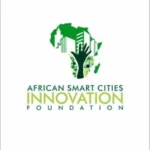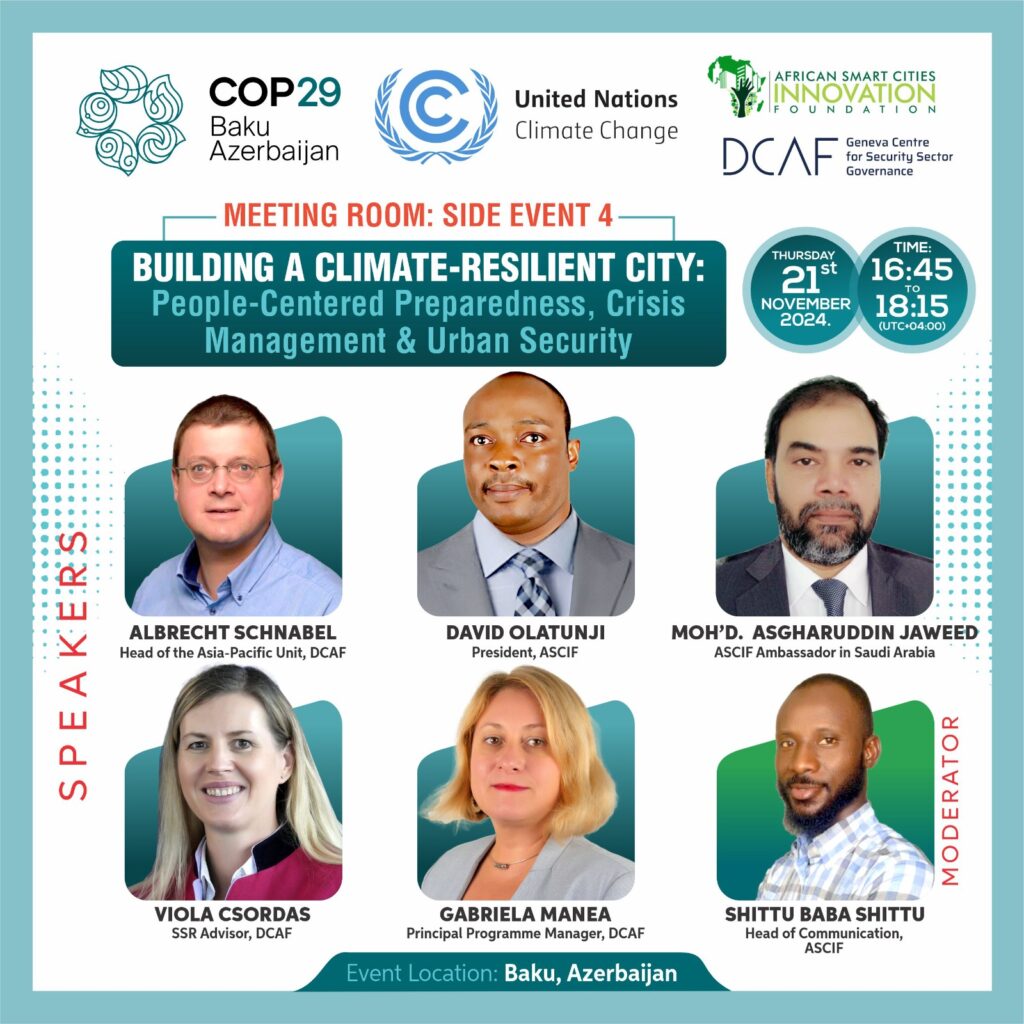ASCIF Side Event at the Africa Urban Forum: “Advancing Sustainable Urbanization for Africa’s Transformation – Agenda 2063”
Dates: September 04, 2024 – September 06, 2024
Location: Adwa Victory Memorial Museum, Addis Ababa, Ethiopia

The Africa Urban Forum is a continental platform dedicated to promoting sustainable development in African urban settlements. Established by the African Union Commission and its member states in 2022, the Forum responds to the rapid urbanization across Africa, addressing both the opportunities and challenges this presents. The Forum aims to support an inclusive and holistic approach to unlocking the potential of urbanization on the continent.
Guided by the Harmonized Regional Framework for Implementing the New Urban Agenda in Africa—developed in collaboration with UN-Habitat and UNECA—the Forum aligns with the transformative vision of Africa’s Agenda 2063. This framework serves as a foundation for addressing urban-related issues and fostering sustainable urbanization across Africa.
The inaugural Africa Urban Forum 2024 will be held from September 4th to 6th at the Adwa Victory Memorial Museum in Ethiopia. The event will feature a variety of formats, including round-tables, plenary sessions, panel discussions, dialogues, side events, assemblies, and exhibitions.
Registration is now open. Click here to register.
Spotlight on Urbanization in Africa
Urbanization in Africa is a significant megatrend. By 2050, it’s projected that around 60% of the population will live in urban areas, a dramatic increase from 47% in 2000. With an average annual urban growth rate of 3.5% over the past two decades, Africa has experienced the fastest urbanization in the developing world—a trend expected to continue through 2050. By 2025, major African cities could be home to as much as 85% of the continent’s population.
Urbanization in Africa varies across regions, each with unique geographic and historical contexts. East Africa currently has the lowest urbanization rate, while South and North Africa lead in urban growth, followed by Central and West Africa, which host some of the continent’s largest megacities.
The shift from rural to urban living alters economic, cultural, and social perspectives. Any efforts towards economic growth, human development, or environmental protection on the continent must engage the rapidly growing urban populations.
Urbanization in other parts of the world has historically driven socio-economic progress. In Africa, urbanization is already reshaping every facet of economic, political, and cultural life. However, the continent lacks precedents and theoretical frameworks to guide its urbanization in a way that ensures an economic dividend. Challenges such as inadequate infrastructure and services, unplanned settlements, significant informal economies, reliance on commodity extraction and exports, and institutional gaps continue to weaken the links between urbanization and industrialization in many African countries.
African cities and towns will inevitably be built over the next three decades. How they are constructed will determine the continent’s future prospects and the viability of global sustainability efforts for the rest of the century. It’s crucial to establish new multi-level governance arrangements and continent-wide programs to harness this urbanization phase, ensuring economic diversification, reduced service delivery costs, and climate-resilient development.
Theme and Sub-themes of the Africa Urban Forum
Main Theme: “Sustainable Urbanization for Africa’s Transformation – Agenda 2063.”
This theme emphasizes the critical importance of leveraging urbanization to drive inclusive, environmentally conscious, and climate-resilient development across the continent. It reflects a commitment to realizing the vision of Agenda 2063, which envisions a prosperous, integrated, and peaceful Africa, with empowered citizens and strong institutions.
Sub-theme 1: Financing Urbanization for Socio-Economic Transformation
Rapid urbanization in Africa presents a significant financing challenge, requiring substantial investments in infrastructure, services, and social amenities to accommodate growing urban populations. Traditional financing mechanisms often fall short of meeting the scale and complexity of urban development needs. This sub-theme explores innovative financing options for urbanization, including public-private partnerships, development finance, and community-based financing models.
Sub-theme 2: Sustainable and Resilient Urban Development in Africa
As African cities continue to expand amid climate change, there is a growing need to promote sustainable and resilient urban development practices that balance economic growth with environmental conservation and social inclusion. This sub-theme delves into strategies for building cities that are environmentally sustainable, socially inclusive, and economically resilient.
Objectives and Expected Outcomes of the Forum
The Africa Urban Forum provides a diverse multi-stakeholder platform to:
- Raise the profile of urbanization as an imperative for sustainable and resilient development in Africa.
- Support inclusive and participatory human settlement development in Africa’s structural transformation and the attainment of Agenda 2063.
- Facilitate dialogue and gain support for sustainable urbanization among Africa’s heads of state and governments.
- Identify, discuss, and prioritize emerging and critical issues in inclusive and sustainable urban development from various stakeholders’ perspectives.
- Exchange ideas, best practices, and innovative approaches related to sustainable urbanization.
- Foster collaboration among different stakeholders at various levels to develop strategies, improve program and project implementation outcomes, share resources, and build capacities.
Expected outcomes include:
- An African Union declaration on sustainable urban development, benefiting Africa and serving as the continent’s position on the global stage.
- Increased awareness of the urban agenda in Africa at the highest levels of government.
- A roadmap for implementing the African Union declaration on sustainable, equitable, and inclusive urbanization.
- Commitments to support African Union urban development flagship projects.
- Investment commitments and partnerships for urban development financing, capacity building, and program and project implementation.
Stakeholder Participation
The Africa Urban Forum will welcome political leaders (local authorities, mayors, parliamentarians, ministers, heads of state), policy and decision-makers, business leaders, media representatives, urbanization and human settlements sector representatives, think tanks, private sector entities, financial institutions, engineers, architects, NGOs, civil society representatives (urban residents, unions, professional associations, indigenous people, women, youth, religious organizations), and citizens of the host country.
The forum will also mobilize new stakeholders to foster a cross-sectoral approach, including Ministers of Finance and Ministers of Environment.

Side Events Hosted by ASCIF
The African Smart Cities Innovation Foundation (ASCIF) is excited to host a series of side events during the Africa Urban Forum, focusing on critical issues that drive sustainable urban development across the continent. These events aim to foster meaningful dialogue, share best practices, and explore innovative solutions to the challenges facing Africa’s rapidly urbanizing cities.
Details of the ASCIF Side Event
One of the key side events organized by ASCIF will take place on the morning session of the second day (September 5th) from 7:30 AM to 9:00 AM in Cinema Hall 2. The session will focus on “Urban Services and Infrastructure,” a topic of immense importance given the rapid and unprecedented growth of African cities.
Since the early 1970s, African cities have experienced significant international assistance, primarily from major agencies like the World Bank. However, as these agencies have evolved, there has been a noticeable shift towards a more decentralized and democratically structured local-government system. While the success of these international assistance efforts has been modest, African cities are increasingly finding solutions independently and through cooperative efforts.
The session will delve into the evolution of urban governance as a promising approach to achieving positive urban development outcomes in Africa. It will explore how this governance model is now at a stage where it can be more focused on institutional processes and potentially impactful outcomes. Essentially, urban governance has emerged as a development paradigm capable of addressing the precarious contemporary urban conditions in developing countries.
Call for Participation
ASCIF invites all interested stakeholders to participate in this critical side event. Whether you are a policymaker, urban planner, academic, or civil society representative, your insights and contributions are invaluable as we explore the future of urban services and infrastructure in Africa. Join us in Cinema Hall 2 on the morning of September 5th to be part of this important discussion.







